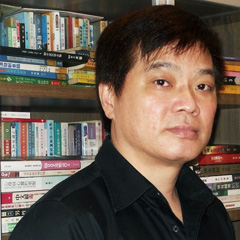02/02/2016
選擇滿意與不滿的兩種人生
Jessica,36歲,收到Henry送的Gucci手袋作為聖誕禮物,問她為何看來不快?「這個袋款是上一季的,價錢減半!好明顯他以為我看不出有分別!」悶悶不樂的她呢喃道。
49歲的John鐘情火車模型,為了展示他的列車,他在住所鋪上過百條路軌,以致家中寸步難行;每次放假,他就會去參觀火車博物館,女友Katie對這一切包容又體諒,實在難得,問他何時把人娶回家?他答:「她只有5尺2寸高,我自己卻身高5尺8寸,她太矮了吧……」
「聰明的人不會為得不到的東西而悲鳴,但會為所擁有的而感恩。」-愛比克泰德
「不滿就是求進步的最基本元素。一個絕對滿足的人,就是一個失敗者。」-湯瑪斯·愛迪生
愛比克泰德及愛迪生,誰是誰非?究竟表達不滿有否價值?當我們神速飛快地跑過人生道路之時,接受與不滿,何者的動力較大?
我們出生時便馬上融入一個已經有無數預先存在條件的社會。這種現狀由嬰兒期間開始感化我們的思維與培育我們的感受。長期受到廣告宣傳及主流意見的持續影響,令我們經常意識不到有其他選擇。在香港,社會的主流是貪婪、對財富及物質的欲望,而非同理心、包容及仁慈,結果反映在我們荒謬的長工時、追求名牌及愈漸奢華的生活方式之上。作為一個籠統的說法,尤其是在今天已過度重視物質及財富享受的香港,我不認同愛迪生的想法。
不滿並不是求進步必要的催化劑。我們需要動力、抱負及同情心,需要計劃與策略,並且絕對需要紮實努力地下苦工才能向前邁進,不能一步登天。貪得無厭、不切實際地追求更大、更好、更快、更多是忘恩負義及自怨自鄰的雛形。不滿是負面又令人軟弱的,並沒有正面的推動力。
不滿當然也有其優點,它不是會令人進步及改進嗎?是的,假設爺孫二人一同參加10公里的馬拉松賽事,兩人都以首100名完成比賽,兩人對賽果感到滿意,爺爺會因此獲得榮譽,孫兒則會被批評為未盡全力。要審視不滿,最難之處就是要求人在考慮所有外在因素,包括超出個人控制範圍的因素下,可以貼近現實正確地評定身處的那些不斷變化的狀況,隨後要勇敢、有氣度、誠實地調低自己的需求至合理的程度,心理及精神上也得調整,接受現實。試舉一例,年邁的求職者在經濟低迷時找工作,但不願意降低求職要求,自然一無所獲,他可以痛恨這個沒有給予他機會的世界,但不會因此而獲得機會;同樣地,一位踏入四十多歲的女士仍堅守她二字頭時所定下的擇偶條件,自然不會找到另一伴,她只會繼續活在自己的世界裏,單身至永遠。假如年邁的求職者與單身女士願意接受身處環境的變化,會知足,他們的選擇會更明智。
追求夢想中的完美不會帶來幸福,當一個人認清身處的狀況,接受現實,並欣賞所擁有的,以及在特定的情況下可以擁有的,幸福才會降臨。
在此,恭祝經濟通的讀者們在猴年過得稱心如意!
(按:中文內容乃翻譯及撮寫版本)
Content & Discontent
Henry gave Jessica, 36, a Gucci handbag for Christmas. Asked why she wasn’t happy ? “ It’s one from last year’s collection, on sale at 50% off !! Obviously he didn’t think I would notice the difference !!..” She said sulkily.
John, 49, loves his miniature trains. His entire apartment is designed to fit the hundreds of tracks he had custom built for his train displays so much so one could hardly walk. All holidays are spent on visiting train museums. Katie’s tolerance & understanding is truly exceptional. Asked why he wouldn’t marry her, “ at 5’2”, she is a bit short for my 5’8”…”
“A wise man is he who does not grieve for the thing which he has not, but rejoices for those which he has.” – Epictetus
“Discontent is the first necessity of progress. Show me a thoroughly satisfied man — and I will show you a failure.” ― Thomas A. Edison
Epictetus & Edison, who is right & who is wrong ? Is there any value in being discontent? As we fly full throttle through life, is acceptance or discontent the more powerful force?
We are all born into societies with countless pre-existing conditions. This status quo begins working on us from birth, molding the way we think and feel. Continuously reinforced by advertising and general consensus, it is so pervasive that often times we don’t even realize that there are alternatives. In Hong Kong, greed, the desire for wealth and material objects rather than compassion, understanding and kindness are the driving forces of our society. The result can be seen in our ridiculously long working hours, the pursuit of luxury items and increasingly lavish lifestyle. As a sweeping statement, and especially within the context of such an environment in present day Hong Kong, I believe Edison to be wrong.
Discontent is not necessarily a catalyst for progress. We need motivation, aspirations, and compassion, we need plans and strategies , and we definitely need solid hard work to move forward, not covetousness. The insatiable, unrealistic craving for bigger, better, faster, more is the rudiment of ingratitude and self pity. Discontent is a negative, debilitating attribute and not a positive impetus.
Surely, there must be some merits in discontent as it triggers evolution & improvement ? True, assuming grandpa and grandson both finish within the first 100 places in a 10Km marathon, grandpa’s content with his own achievement would win accolade just as grandson’s complacency would reap criticism, for he has yet to realize his full potentials. The hardest part in justifying discontent lies therefore in one’s ability to realistically and correctly assess one’s own set of ever changing circumstances with due consideration of all outside factors including those beyond one’s control; and then have the courage, decency and honesty to scale back demands where applicable, making mental adjust-ments and psychological acceptance to suit reality. For instance, an ageing executive job seeker unwilling to curtail his high demands during a deep recession will simply not find a job, he can go on hating the world, but he stays unemployed. By the same token, a lady in her mid 40’s still adamantly hanging on to her list of criteria compiled in her 20’s will simply not find a husband. She can continue to remain a legend in her own mind and stay single forever. Wisdom would be if both the executive and the lady would accept their own changed circumstances and be content with less.
Happiness doesn’t come from coveting something perfect one dreams about, but rather from recognizing one’s true state of affairs, accepting realities , and appreciating what one has or what one can have under the given circumstances.
May I wish all ETNET readers the blessings of contentment in the Year of the Monkey.
《經濟通》所刊的署名及/或不署名文章,相關內容屬作者個人意見,並不代表《經濟通》立場,《經濟通》所扮演的角色是提供一個自由言論平台。
樂本健【年度感謝祭】維柏健及natural Factors全線2件7折► 了解詳情






















